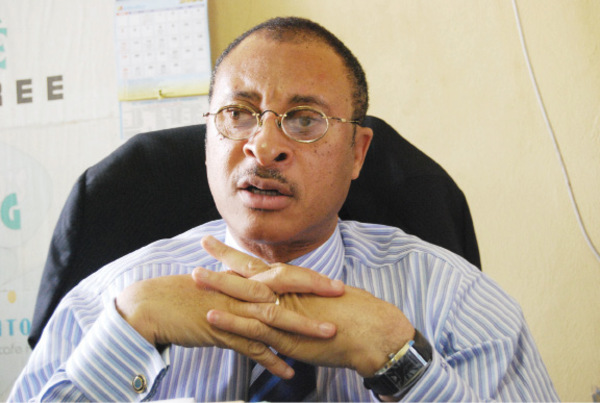With the falling oil price and a national budget predominantly denominated on borrowed funds, the Nigerian naira looks to be set to lose more value in the international currency market. Will citizens turn to superior currencies as a safe haven for their wealth? Will Bitcoin make a sweep into the Nigerian market?
The Nigerian economy has been compared to that of Venezuela as both nations have, for the past couple of decades, generated a major part of their revenue from oil exports.
While the oil boom was in full swing, both Venezuela and Nigeria failed to invest in their futures by developing their oil infrastructure and diversifying their respective economies. With global oil prices collapsing, the nation of Nigeria finds itself in trouble as it struggles to find an alternative source of revenue to fund its national budget. In an attempt to address this issue, Nigerians have seen an influx of internal policies, indirectly taxing citizens of the country through the introduction of a number of bank charges and other institutional charges for services within the country. However, these small fees barely make a dent in, let alone eliminate, the huge deficit of about $11Billion reflected in Nigeria’s 2016 National Budget.
Opinions have emerged on what the response of the Nigerian public will be as several indicators point towards further depreciation of the national currency.
A major problem has been created
Although the Nigerian President has insisted that he would not move to officially devalue the naira, something he reaffirmed when he met with Nigerians living in Kenya during his last visit, his statement has been criticised in some circles. Prominent among his critics is Pat Utomi, a renowned Nigerian professor of political economy and a management expert. He is also a Fellow of the Institute of Management Consultants of Nigeria. Prof. Utomi said that the President had created a major problem for the Nigerian economy by making that statement. In his words,
“Somebody like him should not be talking about such things, keep quiet let people who talk about them, whatever your sentiments are talk about them, otherwise you create a problem [sic].”

- Pat Utomi, Nigerian professor of political economy and a management expert.
He concluded by saying that the country did not take advantage of the windfall by diversifying its economy when oil prices were high, despite knowing how volatile the price of oil can be.
Is there a patriotic will?
Ekene Isiuwe, an ex-banker with Investment One Financial Services Limited holds a similar opinion to that of Prof. Utomi. According to Ekene:
“Several governments have spoken extensively on other income heads that could supplement the income loss from falling prices in crude oil, but implementation has been lacking.”
Ekene says that for the naira to survive, the citizens of Nigeria must take up the patriotic responsibility of avoiding the rush of trying to secure their personal wealth, by storing them in superior currencies, so that the demand for the naira can still be reasonably sustainable. However, he does concede that such patriotism might just be too much to ask from a people whose wealth matters so much to them.
The naira is dead
Amang Saliyuk, an SEO Consultant and blogger, was particularly blunt about the matter, and very straightforward in his assertion, saying:
“When Mao Tse-tung took over in China the first thing he did was to force everyone to the farms, he made sure the country had enough before they even talked about exports he ensured that internal capacity was developed.
When they fully developed the capacity to feed themselves and were also able to produce their daily needs without imports they started exporting. Farming for now is our only way out. Create an almost closed economy, make sure our fiscal and monetary policies are in tandem. The truth is that the naira is dead and our government knows it. The President is just scared of the backlash that is why the naira hasn't been devalued yet.”
The boat has sailed already
There is usually a prevailing trend which occurs within most developing nations at the sight of a falling local currency. Citizens and institutions very often tend to store their wealth in superior currencies and in locations far from their immediate economic environment. This phenomenon has already began to unfold within the Nigerian system.
Babatunde Ajayi, Team Lead of Corporate Finance at Investment One Financial Services Limited, when asked about this, responded by saying;
“Sorry to be the bearer of bad news but most rich folks and financial institutions are already holding their cash in ‘hard currencies’.”
Some facts are very clear about the state of the Nigerian economy;
The future does not look very good for the Nigerian local currency.
Rescuing the naira will take time and disciplined commitment.
Nigerians are already seeking safe havens to preserve their wealth and protect its value.
The big question is; Will Bitcoin seize the opportunity to make its way into the most populous African nation?
Only time will tell.
